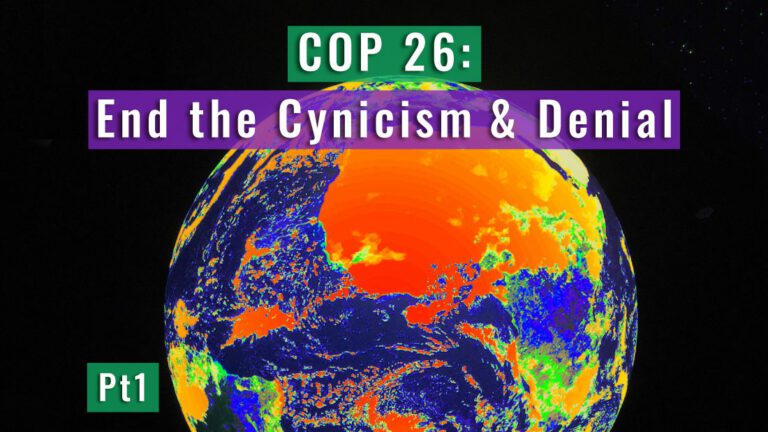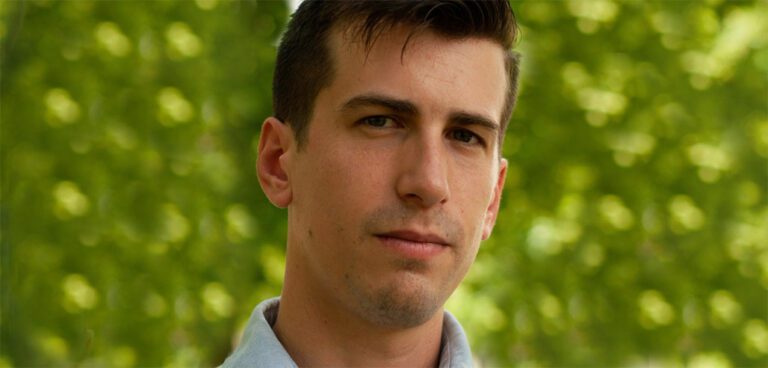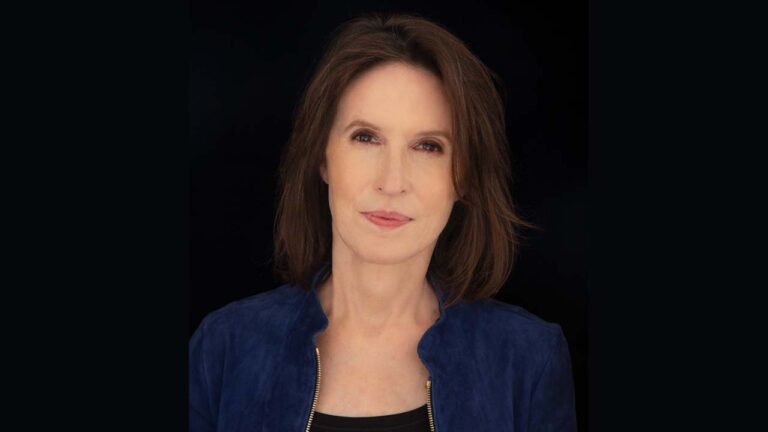Biden’s climate plan has serious defects but Trump’s aggressive climate denial must be defeated, says economist Robert Pollin, co-author with Noam Chomsky of Climate Crisis and the Global Green New Deal: The Political Economy of Saving the Planet. Additionally, Pollin reveals that a Nobel- Prize-winning economist says that four degrees warming above pre-industrial levels would be “optimal” — something climate scientists consider cataclysmic. Robert Pollin joins Paul Jay on theAnalysis.news podcast.
Transcript
Paul Jay
Hi, I’m Paul Jay, and welcome to theAnalysis.news podcast. Please don’t forget there’s a donate button at the top of the webpage.
We are recording this podcast three days before the November 3rd election. That is, on Halloween, and this is truly the spookiest Halloween of my lifetime.
The Covid crisis is in its second wave with really no end in sight as the production and distribution of an effective vaccine may still be at least a year or more away. And even then, no certainty that it will work. And the election in the United States that could reelect an outright climate-denier as president, which will pretty much make hitting any of the targets set out by the scientists at the IPCC impossible. It may mean the end, as Noam Chomsky says, of organized human life on the planet.
Now joining us to discuss the current moment and his new book he co-authored with Noam Chomsky is Bob Pollin. He’s the co-founder of PERI, The Political Economy Research Institute at the University of Massachusetts Amherst. And the book is, The Climate Crisis and the Global Green New Deal: The Political Economy of Saving the Planet.
Thanks for joining us, Bob.
Bob Pollin
Thanks very much for having me.
Paul Jay
So, in the new book, there’s a quote from Chomsky, which I’ll read: “It might be considered outrageous to assert that today’s Republican Party is the most dangerous organization in human history. Perhaps so. But in the light of the stakes, what else can one rationally conclude?” And Noam lays out in the book that it’s the twin threats of the climate crisis and the threat of nuclear war that leads him to that conclusion.
Well, most of our audience is going to agree with this, Bob, but does Biden offer a real alternative? Now, you and I have talked before. We know a Biden alternative is better than climate denial. But when you dig into the Biden alternative, I guess what I’m asking really is, is it an effective alternative?
Bob Pollin
Well, certainly, as you say, let’s start with the fact that it isn’t climate denial. So, there we go. I think that is a major advance on, as Noam said, the most dangerous organization in human history because they’re, you know, aggressively climate-denialists.
The Biden plan has some good features. It does talk about a spending level in advancing a green economy, transitioning out of fossil fuels — well, I don’t want to say that — a green economy at a scale that I think is appropriate. About two and a half percent of GDP every year: that’s about right. He does talk about job creation through these investments and that they should be good jobs, union jobs. He talks about a just transition for workers that are now in the fossil fuel economy and will obviously, inevitably see their jobs disappear. So far, so good.
The bad parts of the Biden plan, and these are significant problems in my view, is that he puts a lot of emphasis on carbon-capture technology that will enable fossil fuel production to continue. So, as we’ve seen in the debates with Biden and with Kamala Harris, they continue to say, We are not in favor of eliminating fracking — that is, producing natural gas and burning it to generate energy. And so, if you’re going to allow the continuation of burning fossil fuels, the only way that that can happen and still conceivably reduce carbon emissions is through this so-called carbon-capture technology.
But carbon-capture technology is unproven. It has never worked at commercial scale. Even if we can get there in twenty or thirty years, we need to reduce emissions in ten years — dramatically. And so, the carbon-capture technology, in my view, is certainly not a solution, not over the next twenty years. And unfortunately, therefore, the Biden program, which emphasizes this so heavily, moreso even than solar power, wind power, high efficiency, has, you know, major, major problems that we have to fight against.
Paul Jay
Now, as we talked about earlier in a previous interview when we talked about the Biden plan, in at least what’s on his website, he doesn’t talk about phasing out fossil fuel. Although, as you say, all the emphasis is on carbon capture.
But at the end of the last debate, he actually, it seemed, almost got off-script. He acknowledged there does have to be a phasing out of fossil fuel. Here’s the moment from the debate:
Debate Excerpt
[Trump:] Would you close down the other way? [Biden:] I would transition from the oil industry, yes. [Trump:] Oh, “transition.” That is a big statement. [Biden:] It is a big statement.
Paul Jay
So, he actually does come out and say, Phase out fossil fuel. But then after the debate, he kind of walked it back and said it’s going to take a long time. It could take — I think even at some point he said it could take decades. He seems so concerned about his electoral fortunes, how this is going to sound in places like Pennsylvania that depends on — I shouldn’t say Pennsylvania depends on fracking — where fracking is an important business in Pennsylvania. Pennsylvania doesn’t depend on fracking. Some people play it like it does.
But, that said, what I don’t understand is why he doesn’t hammer the issue of a just transition, which I know you’ve done a lot of work on? Why isn’t he hammering that there’s no reason why workers in the fossil fuel industry should be the ones that bear the burden for something that’s developed — you could say “for the benefit” but these days, I’m not so sure “benefit” is the right word for fossil fuel. But anyway, has been made use of by the whole society. So, there’s no reason why workers in this industry shouldn’t be paid to transition to other kinds of jobs.
Do you get it? I don’t get why he’s not hammering this.
Bob Pollin
Well, I get it. I mean, think in terms of being a mainstream politician, you know, trying to get elected. it doesn’t mean it’s right and it doesn’t mean it couldn’t have come up with a much better approach. It would have been much more forceful.
But, you know, I just did a study for the state of Pennsylvania commissioned by labor groups and environmental groups in the state on exactly this issue. And, you know, basically, if we look at oil and gas extraction and support activities in the state of Pennsylvania, there’s fewer than thirty thousand jobs in total. And that’s in the labor force of over six million people. So that’s one half of one percent of employment in the state.
And then if we allow that, of course, we’re not going to shut down the industry in one year: we’re going to phase it out over, say, twenty years. Now we’re looking at something like, you know, a thousand jobs per year that are going to be lost and we have to find new employment for these thousand people.
This is easy to do. And so, what we estimate in our study, we say, Look for these thousand people a year, let’s say we guarantee them a new job. Let’s say we guarantee that the wage for the new job is going to be equal to the old job. Let’s say that we will also pay for retraining and relocation as needed. Oh, and we guarantee their pensions.
We’re looking at an overall budget for a just transition that’s, like, one one-hundredth of one percent of the state GDP. It’s minuscule. So, you know, this is the kind of thing that needs to be hammered at, focused on. And if Biden gets elected, hopefully this evidence, this kind of program is going to filter into what the Democrats are going to be advancing.
Paul Jay
And given the urgency of the issue — if twenty years is too long, and so on — it’s a pittance of money if you pay every single one of those workers a full wage until they have another job. I mean, given what the Fed is churning out in money right now, this is not even a fraction of what’s being put in.
Bob Pollin
It’s nothing. Yeah. The Fed since March, since the pandemic and the economic collapse resulting from the pandemic, the Fed is bought up about two and a half trillion dollars of Wall Street assets. Two and a half trillion. So that’s about twelve percent of U.S. GDP in six months. OK? Two and a half trillion. For the state of Pennsylvania, if we are to give everybody — as I said, if we’re talking about the thousand workers — or double that. Let’s say it’s two thousand. Let’s say it’s three thousand.
Paul Jay
Let’s say it’s all of them!
Bob Pollin
OK, let’s say it’s all of them. [Laughter.] We’re looking at maybe — you know, I’ve only done it year to year to year to year. So, let’s say it’s five billion dollars a year, which is an over-estimate relative to what we’ve calculated.
Again, this is a pittance. It’s not even a rounding error relative to the amount of funding that would be available if we say, Look, the climate crisis is an existential threat. We have to proceed with a transition and we have to take care of all the workers and all the communities that are currently dependent on fossil fuels. This is an absolutely trivial problem to solve if there is the political will.
Paul Jay
Well, it just beats me why Biden won’t say it, except he’s concerned less about the consequences of what it might cost and more about getting the fossil-fuel industry angry at him. I guess that’s the real consideration here.
Bob Pollin
Well, sure, that’s what it is. You know, you have the Koch brothers lined up and other fossil-fuel-industry people lined up, and, you know, jobs lost. And there is this real thing that these jobs – like, jobs in fracking in Pennsylvania — they pay. They pay over $100,000 a year on average. The jobs in the clean energy economy pay on average $70,000 a year. And they’re not jobs that are there.
So, I’ve been giving talks to union groups and so forth. And what I hear is, you know, the people say, OK, professor, you’ve got your numbers. That’s all well and good. But the environmentalists don’t really care about us. And these fracking jobs that we have, they’re real. It’s money in our pockets. Now, what you’re talking about is pie-in-the-sky stuff, and we have no evidence it’s going to happen.
Paul Jay
Well, it wouldn’t be so pie-in-the-sky if Biden would come out and make an absolute real commitment to it.
Bob Pollin
That’s right. But we have to overcome that. And it’s not going to come from Biden. It has to come from movement activity. And that’s the kind of work that these groups are doing, like Labor Network for Sustainability and the groups I’m working with in Appalachia, such as the Keystone Research Institute and Reimagine Appalachia. These are great groups, important groups, and they’re the ones that are making the case. There’s another one called the Marshall Plan for Appalachia. These groups really deserve support and hopefully they are going to get through to the new administration, and hopefully there will be one. And that’ll be a centerpiece.
Paul Jay
Now, it’s not like it’s going to happen overnight, the transition out of fossil fuels. Right now, sustainables don’t produce enough energy to replace fossil fuel tomorrow. So, there’s got to be a transition. It will take some time. Obviously, the sooner the better. What do you make of the argument that natural gas is part of the transition?
Bob Pollin
I vehemently disagree. Fossil fuels are part of the transition in that, as you just said, they’re not going to wind down in one year. There’s no way it is possible. Let’s say they wind down in twenty years or even thirty years at most. We can still get to zero emissions if they wind down in thirty years. But they have to wind down. We have to cut them three or four percent starting tomorrow. And then the percentage of the contraction has to get bigger every year because the base is getting smaller.
So, they have to wind down. We can’t build up new fracking operations or new natural gas operations. The argument for natural gas as a so-called bridge fuel has two features. Number one, when you burn natural gas, it reduces emissions relative to burning coal. OK, that much is true. But it still generates emissions. And if you need to get to zero emissions, that means you can’t burn natural gas any more than you can burn coal. The second argument about natural gas is that, yes, under fracking, it can be done really cheaply and we’ll have low prices. And fracking is cheaper than the traditional technology for extracting natural gas. It doesn’t mean it’s any cleaner.
And so, we have to stop. We have to wind down the operations that we have. And if you allow investments in new fracking and new natural gas, those guys aren’t going away in five years. You know, these things are going to last for thirty years, forty years. We’ll never hit the emission reduction target if that’s the commitment to natural gas.
Paul Jay
So, here’s the rub. It seems pretty obvious that market mechanisms alone, the market on its own, and even government-triggered market mechanisms aren’t going to get us there. Certainly not soon enough. But the other side of it is, we ain’t getting to some kind of new economic, political, social system — socialism or whatever you want to call it — in time, either. Chomsky writes in your book that dismantling capitalism is impossible within the timeframe necessary for taking urgent action, which requires a major national — indeed, international — mobilization if severe crisis is to be averted.
I mean, that’s a heck of a rub, because he’s right. This has to be serious. Action has to begin tomorrow. Or, if it’s a Biden administration, if they get serious, if the mass movement pushes them, you know: this has to be started right away. But capitalism and the power of the financial sector, which is heavily invested in fossil fuels — they ain’t getting dismantled anytime soon, either.
Bob Pollin
So, here’s the thing. If we want to think about an entirely different economic-social system that we want to call socialism, you know, of course, that’s not going to happen in ten or twenty years, as much as we may want it to happen.
Paul Jay
At least not in the United States, anyway.
Bob Pollin
But it’s easy to envision a dramatically different variant of capitalism that would be defending the future of the planet and advancing a much more egalitarian project relative to our current neoliberal dominance.
Here’s some simple things that we can think about that are realistic and would also move us dramatically in the right direction. For example, under Biden, if we say that we impose a regulation that every single utility that generates electricity has to cut its CO2 emissions by five percent per year, let’s say, which is realistic, and if they don’t do it, the CEO goes to jail, they will cut emissions by five percent per year. Or we say that CEO goes to jail and they pay a $50 million fine: the CEO will figure out a way to cut emissions by five percent. That will transform the energy market because we have the capacity to build up clean energy — solar, wind, especially. Solar and wind right now are at cost parity or cheaper than fossil fuels. We just have to build them up.
So, you can build them up very, very rapidly. It will be within capitalism. There will be opportunities within capitalism for new types of small businesses to form. For example, cooperative clean-energy enterprises or, for example, what’s already happening in the Plains states — South Dakota, North Dakota, Wyoming — where farmers, private capitalists, are putting up wind turbines and having their own solar farms. They’re making money off of it. They’re capitalists and they’re selling it. And so, the highest proportion of clean energy relative to the overall economy in the United States right now is actually in the Plains states. And this is within capitalism. So, these are things that can start happening immediately at large scale.
Paul Jay
I mean, I think a lot of the left — the socialist left — really have to accept that. Some haven’t and maybe some have, but they have to accept this is going to have to happen within capitalism or it ain’t gonna happen fast enough. So that really is going to require a mass movement that really forces the case.
But it also is going to require some sections of the elites to take this all more seriously. It seems to be starting a little bit. I mean, you see in the financial sector, a more serious recognition that it’s a crisis. I don’t think any of the solutions they want to go to are serious.
But I was struck by something in your book, and I’m going to read a quote. You’re talking about a mainstream, prominent, orthodox economist, and you write this: “The fact that the single most prominent orthodox economist in the world working on climate change considers the risks from four degrees centigrade” — that’s four. I mean, the world starts to get unlivable at three, anyway. You go on: “…the risk from four degrees centigrade of warming to be ‘optimal’ tells us everything about the bankrupt state of orthodox economics.”
You’re telling me there are “serious” economists that think four degrees is a livable planet?
Bob Pollin
I’m telling you more specifically that William Nordhaus is who I’m quoting there. He won the Nobel Prize in economics two years ago, and what I’m quoting from is Nordhaus’ actual Nobel Prize lecture in December, 2018, only two months after the Intergovernmental Panel on Climate Change said that we have to stabilize the global average mean temperature at one-and-a-half degrees above pre-industrial levels or else we face dire consequences. Nordhaus, the Nobel Prize winner in economics, says four degrees is “optimal.”
So, yeah, I mean, this is insanity. And this is not some crazy right-wing hack on Fox News. This is William Nordhaus, Yale University, Nobel laureate 2018 in economics.
Paul Jay
But he’s not a climate scientist.
Bob Pollin
He’s not a climate scientist, and neither am I. And so, we have to rely on climate science. I don’t know which climate scientist Nordhaus is listening to.
I’m willing to accept whatever the IPCC — as we know, the IPCC is not a research organization. They gather the research, and they synthesize, and they put out what they think are mainstream perspectives.
And you know what? Maybe the mainstream is wrong. We know a lot of mainstream research on a lot of subjects is wrong. But 98 percent of climate scientists will accept the broad parameters of what comes out of the IPCC. And by their October, 2018 report, they said we have to get to forty-five percent reduction in emissions by 2030 and net zero by 2050 to stabilize at 1.5 degrees above pre-industrial levels.
That’s their overall conclusion. So, I’m willing to go with that. And some people have criticized me, saying, well, that’s too slow. You know, the IPCC is too conservative. Maybe they are, but OK, let’s take that one.
But then we have Nordhaus. The only Nobel Prize winner in economics, by the way, who based his work on, exactly, climate science. And his Nobel lecture says, let’s get to four degrees and stabilize there, and that’s optimal. Crazy.
Paul Jay
What does he mean by optimal? I mean, the models I’ve seen whether it’s Stern, who used to be the chief economist at the World Bank, or you go with the IPCC and so many other scientists: four degrees means most of the southern hemisphere is not livable. I mean, millions and millions of people heading north. I mean, what — what –?
Bob Pollin
[Laughing.] You’ll have to ask Nordhaus. I mean, read his Nobel lecture. It’s right there. I mean, to be fair, he says, OK, we get to a two-degree warming by 2050. So, he says, let’s get there by 2050. But then he says, OK, we can keep going. And so, by 2150, we’re at four degrees and we stabilize at that. And the reason he says it’s optimal is because he actually is saying that the costs of climate change going up to four degrees, Ehhhh…they’re not that bad. That’s what William Nordhaus says.
Yeah, it’s insanity but he got the Nobel Prize.
Paul Jay
Well, I guess maybe if you’re looking at it from the point of view of the elites, maybe they think it’s not that bad.
Bob Pollin
Yeah, I don’t know. Again, ask Nordhaus. I can’t answer what he’s thinking.
Paul Jay
And I wonder how much this informs the thinking of the leaders of the financial and corporate sector, and all that. I mean, if they’re listening to him, then maybe that’s why they’re not very worried.
Bob Pollin
You know, there are people in the financial world, the elites, who have much more serious views. In fairness, I don’t really like Mike Bloomberg for a lot of reasons, but he is pretty active around supporting climate transition. And Bloomberg News puts out some pretty good stuff, including just the other day, according to Bloomberg News, they said, well, investments in clean energy, so-called green bonds, has hit one trillion dollars.
So, there are people like that. And in terms of, what are the capitalist interests here? Well, obviously, fossil-fuel capital is going to be vehemently opposed to any kind of transition. But other capitalists? As I discuss in our book, there’s no reason why capitalists in other sectors of the economy should be opposed to a green transition in that the amount of money they’re going to have to pay for energy is going to go down, not up.
It’s going to go down because, number one, renewable energy is at cost parity. If you look at the evidence from Trump’s own Energy Department, cost per unit kilowatt of electricity are equal or lower from wind, solar, and geothermal relative to fossil fuels and nuclear. Number two, if you invest in efficiency, that means you pay less. By definition. You know, it’s going to be thirty, forty percent less energy needed to light buildings, to run industrial machinery. And when you buy clean energy, renewables, you’re not going to pay more. You’re going to pay less. So, people in other sectors of the economy, they should be just fine with a clean energy transition within capitalism.
Paul Jay
Well, I think another thing the left and progressive people are going to have to get their head around is that if this transition is going to take place, then some of these industries, even some of the big capitalists, — some of The Lords of Finance, as we call them sometimes — maybe the state, the government, is going to have to subsidize them some in order to I don’t know if it’s bribe them or to cover some of their losses.
Like, you take the finance sector: very heavily invested in fossil fuels, especially the big asset management companies like BlackRock, State Street and Vanguard that buy whole indexes that have fossil fuel on the index. But they also even in their what they call discretionary funds, where they can pick and choose, they buy fossil fuels. They can just move their money to something else. As you say, they could see the closing down or phasing out of fossil fuel, but maybe they might lose something along the way. Maybe the state will have to, you know, bribe them.
We’ve talked before about nationalizing the fossil fuel companies. Even there, there may have to be maybe payments made as part of the nationalization. But I think we have to rethink the role the government’s going to have to play in this to induce, seduce, and force these kinds of changes.
Bob Pollin
Oh, yeah, absolutely. For one thing, the fossil fuel industry right now is flat on its back due to the economic collapse and prior to that due to the price war over oil between Russia and Saudi Arabia. So, the oil industry is at its low point. It has lost 50 percent of its value from January to April. It’s come back somewhat, but it’s still way down.
The fracking industry in Pennsylvania is also flat on its back. They have overbuilt and they can’t sell the gas that they have. And so, it would be easy for the federal government to come in and simply buy up a majority share of the fossil fuel industry. Actually, shareholders in fossil fuels would probably be very relieved that their shares would be bought up at a price above what the market is willing to pay. Right now. And then the government could phase out the industry.
It wouldn’t be, at least in the short term, all that different than what the Obama administration did with the auto industry in 2009. They bought General Motors and they bought Chrysler. Now, yes, the Obama administration sold those companies back to the market after a few years of stabilization. But in this case, the government could come in and buy it and not sell it back, but phase it out. And that would be consistent with what we have to do in terms of climate stabilization.
Paul Jay
All right. Well, none of this happens if Trump wins on November 3rd, but let’s assume he doesn’t and there is a Biden administration. As I said in something I wrote recently, at least there’s a conversation about what’s effective if there’s a Biden administration. It’s not that it’s going to be some slam dunk that there’s going to be an effective climate policy. But there’s space for a mass movement to organize and there’s a hopefully real possibility of pressuring an administration that at least acknowledges the severity of the crisis.
So, we’re going to do another part or two of this interview and we’re going to dig into it more. If there is a Biden administration, what should its policy look like? What does an effective Green New Deal look like in Bob Pollin’s point of view? What is it that people should be pushing this administration to do?
So, thanks, Bob.
Bob Pollin
OK, thanks.
Paul Jay
And thank you for joining us. And please join us for the other parts on theAnalysis.news podcast.







If we believe what the climate scientists, the vast majority, have already told us, then our worldwide leaders have probably already allowed tipping points to be passed, or the measures that must now be taken to avert passing them are so extreme that the political possibility of their implementation is negligible. So our geese are cooked. What is all the fuss about?